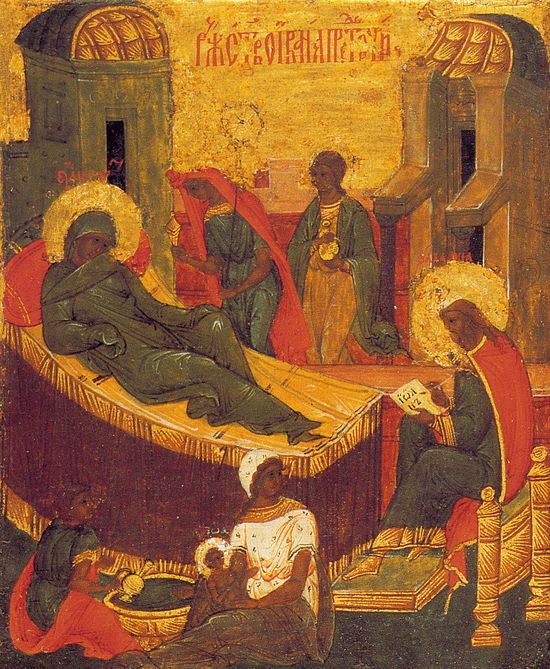Celebrating the Nativity of St. John the Forerunner: A Reflection on Tradition and Teachings

Tomorrow, we celebrate the Feast of the Nativity of St. John the Forerunner. This feast honours the miraculous birth of the one who would prepare the way for our Lord Jesus Christ. St. John, often referred to as the Forerunner or the Baptist, stands as a bridge between the Old and New Testaments, embodying the spirit of repentance and heralding the arrival of the Messiah.
The Significance of St. John’s Birth
The Nativity of St. John the Forerunner is one of the few saints’ nativities celebrated by the Orthodox Church, emphasizing his unique role in the divine plan of salvation. His birth itself was miraculous, as his parents, Zacharias and Elizabeth, were advanced in years and childless. The Archangel Gabriel announced John’s birth to Zacharias, foretelling the child’s greatness and his mission to turn many of the children of Israel to the Lord their God (Luke 1:13-17).
St. John’s life was marked by asceticism and a profound commitment to God. He lived in the wilderness, preached repentance, and baptized those who sought to renew their lives in anticipation of the coming Messiah. His unwavering dedication and his ultimate martyrdom underscore his role as a true prophet and a herald of Christ.
Insights from St. Theodore the Studite
St. Theodore the Studite, a renowned monastic reformer and theologian of the 8th and 9th centuries, wrote extensively about various saints, including St. John the Forerunner. St. Theodore’s works often reflect on the virtues and exemplary lives of saints, offering theological insights and practical applications for the faithful.
In his writings, St. Theodore highlights the significance of St. John’s birth and his prophetic mission. He emphasizes the virtues of humility, repentance, and unwavering faith in God’s promises, which are exemplified in the life of St. John. St. Theodore calls upon the faithful to emulate these virtues, particularly in the context of monastic life and personal spiritual growth.
St. Theodore also underscores the importance of recognizing God’s intervention in human history through miraculous events, such as the birth of St. John. These events, according to St. Theodore, serve as reminders of God’s active presence in the world and His continuous work in guiding humanity toward salvation.
Embracing the Feast in Our Lives
As we prepare to celebrate the Nativity of St. John the Forerunner, let us reflect on the virtues he embodied and the mission he fulfilled. This feast is not merely a commemoration of a historical event but an invitation to renew our commitment to repentance and to prepare our hearts for the coming of Christ.
In the spirit of St. John, we are called to live lives of humility and service, turning away from sin and striving toward holiness. Let us take inspiration from his example and the teachings of saints like St. Theodore the Studite, who guide us in understanding the profound spiritual truths embedded in our traditions.
May this feast be a time of spiritual renewal and a reaffirmation of our faith. As we honor St. John the Forerunner, let us also remember our own calling to be heralds of Christ’s love and truth in the world.
Blessed Feast of the Nativity of St. John the Forerunner to all!
References:
- Luke 1:13-17
- The Lives of the Saints: Various writings on St. John the Forerunner
- St. Theodore the Studite: Theological writings and reflections on saints and their virtues





